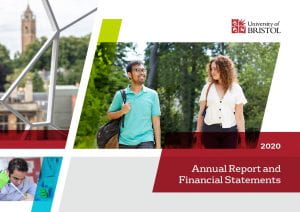 It was a long and cold winter, but that didn’t stop the student vets. Every fortnight they put on their biggest coats and headed into the city, handing out food parcels to homeless people with pets. They have been making sure no animal goes hungry for years – and neither cold weather nor a pandemic was going to stop them this time.
It was a long and cold winter, but that didn’t stop the student vets. Every fortnight they put on their biggest coats and headed into the city, handing out food parcels to homeless people with pets. They have been making sure no animal goes hungry for years – and neither cold weather nor a pandemic was going to stop them this time.
Students get a bad rap, but they make a huge contribution to our city, often in ways which go unnoticed.
They aren’t perfect (who is?) but having an extra 60,000 vibrant young adults in our city enriches it in a hundred ways, and we would be a poorer place without them.
Every day, thousands of students are doing their bit to help out. Not just through the hundreds of millions of pounds they contribute to our economy, but also with their vital voluntary work and the scientific breakthroughs that have far-reaching benefits for our city and beyond.
Many stay on, building businesses or working for our public services. Some go on to the stage or screen, to become scientists and politicians, renowned engineers and doctors – helping to export Bristol around the world.
The University of Bristol has nearly 29,500 students and UWE Bristol more than 30,000. Most of these eagerly spend their loans – hundreds of millions of pounds worth – on everything from local cafes to bus services.
In fact, a recent report found that spending by our students alone supported 4,540 jobs, and that’s not mentioning the 11,490 jobs the University of Bristol supports through its staff roster and spending with local companies. In total the university contributes £1bn a year to the region.
In 2014/15, the latest period for which figures are available, UWE Bristol supported 8,280 jobs in the region and contributed £400.1m to the local economy.
Meanwhile thousands of students volunteer in Bristol – and never have they been more needed than during the pandemic.
Over the past year more than 500 of our student medics have been working on the NHS frontline. From Abbi, a second year Bristolian determined to help out her home city, to final years like Luke, who gave up his summer to support NHS staff.
But it’s not just medics. A survey found that 30 per cent of our students volunteer in some capacity. Some help out with one of Bristol SU’s 15 student-led projects, others with hundreds of local organisations. Bristol students have been running food banks, sewing period pads for refugees, helping out in people’s gardens, putting in calls to the elderly, working with disability charities and much more.
It’s no different at UWE Bristol, where fashion students have been sewing PPE and delivering food packages worth £1,000 to local food banks.
And, of course, there are the student vets out every fortnight come rain or shine helping the homeless. Later this year they hope to set-up a free vaccination clinic for Bristol pet owners struggling to afford veterinary treatment.
Meanwhile, post-graduate students carry out world-beating research to Bristol. Marceli, a PhD student, has been embedded in a local ICU since the pandemic began, has been using technology to improve outcomes for patients.
Others develop new technology and then turn them into university spin-off companies.
Dr Harry Destecroix co-founded Ziylo while studying for a PhD at Bristol. The company developed new tech to help diabetes sufferers and was recently sold for hundreds of millions of pounds. He’s now the brains behind Science Creates Ventures, a Bristol-based venture capital firm which supports early-stage deep tech companies.
Some students never leave. Take Stephen Dunleavy who studied at Bristol and founded Humble Bee Films, which just produced the beautiful Attenborough’s Life in Colour series for the BBC.
Many, however, do, taking the good name of Bristol with them.
Every year thousands of international students graduate and head home as global ambassadors for Bristol. Others go on to great things: from actors like Simon Pegg and David Walliams, to the former head of MI5 Jonathan Evans and 13 Nobel laureates.
UWE Bristol’s Katie Alcott has helped more than 426,459 people in 617 communities reach safe water since she graduated and set up Frank Water.
Meanwhile, every year 1,400 fresh faced and eager nurses graduate from UWE Bristol. As with our final year medics, many of UWE Bristol’s third-year nurses and midwifery students chose to begin their NHS careers early when the pandemic struck.
Being a second home to nearly 60,000 students would be a huge benefit to any city, but having 60,000 talented, enterprising students so generous with their time? That is truly something to celebrate.
This article originally appeared in Bristol 24/7.





 This is the first in a new series of regular updates, setting out how the University is addressing the challenges of COVID-19 and keeping our students, staff and neighbouring communities safe.
This is the first in a new series of regular updates, setting out how the University is addressing the challenges of COVID-19 and keeping our students, staff and neighbouring communities safe.